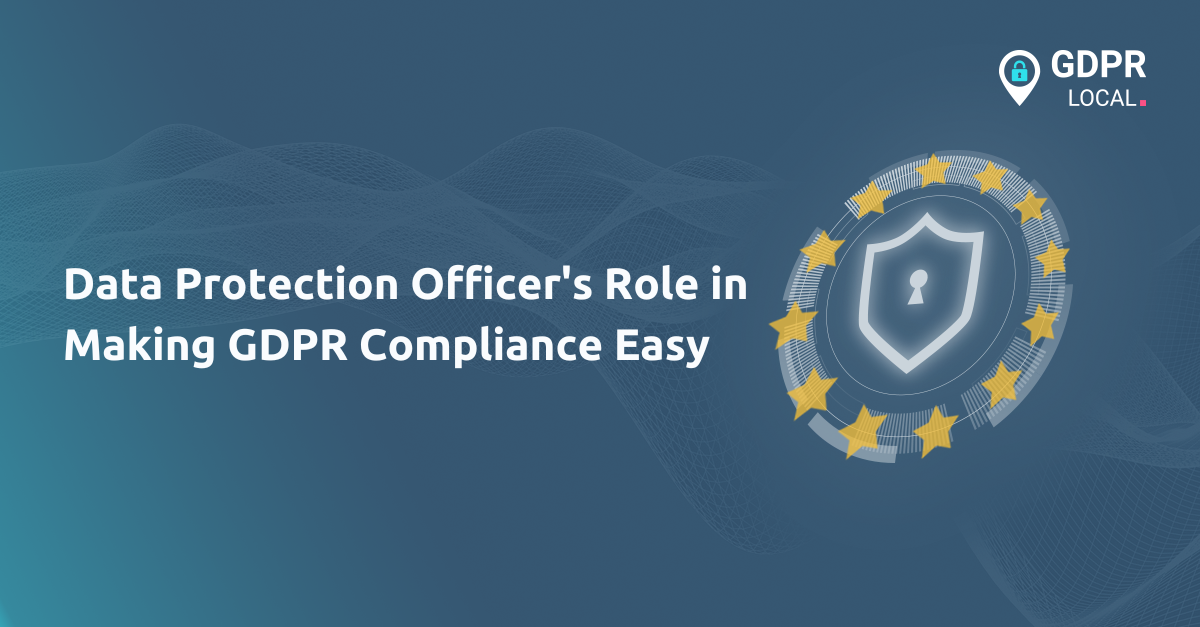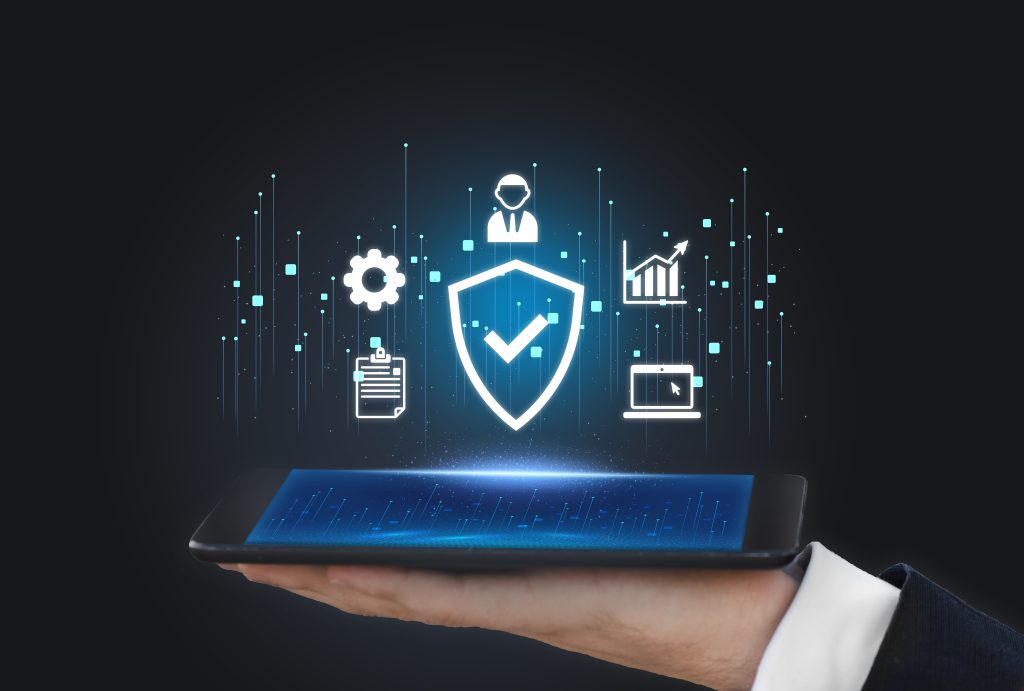
Data Protection Officer’s Role in Making GDPR Compliance Easy
Updated: August 2025
Given our existing awareness of the increasing importance of safeguarding personal information for both individuals and organisations, the General Data Protection Regulation (GDPR) was introduced to ensure the protection of rights and privacy within the European Union (EU). One of the key requirements of the GDPR is the appointment of a Data Protection Officer (DPO) by certain organisations. In this article, we revisit the responsibilities and importance of a DPO in ensuring GDPR compliance.
Key Takeaways
• A Data Protection Officer (DPO) is a required role for specific organisations under the General Data Protection Regulation (GDPR). This individual is an expert responsible for overseeing an organisation’s data protection strategy and ensuring compliance with GDPR requirements.
• The DPO has four main responsibilities: informing and advising the organisation on data protection obligations, monitoring compliance through audits and assessments, acting as a point of contact for individuals regarding their data, and cooperating with supervisory authorities.
• Appointing a DPO provides significant strategic benefits beyond legal compliance. It helps reduce the risk of data breaches and financial penalties, builds trust with customers and partners, and demonstrates a formal commitment to accountability and protecting personal information.
Understanding the GDPR and DPO
The GDPR is a comprehensive regulation that sets out the rules for the collection, processing, and storage of personal data. It applies to all organisations that handle the personal data of EU residents, regardless of their location. The regulation aims to give individuals control over their personal information and harmonise data protection laws across the EU.
A DPO is a designated individual within an organisation who is responsible for ensuring compliance with the GDPR. DPO’s main role is to assist with data protection and serve as a contact for individuals whose data is processed. The DPO plays a crucial role in promoting a culture of privacy and data protection within the organisation.
The Responsibilities of a DPO
Informing and Advising
One of the key responsibilities of a DPO is to inform and advise the organisation, as well as its employees, on their obligations under data protection law. This includes: a guide on handling personal data, ensuring GDPR compliance, and raising awareness of privacy rights and obligations.
Monitoring Compliance
The DPO is responsible for monitoring the organisation’s compliance with data protection laws. This involves conducting audits, ensuring that appropriate policies and procedures are in place, and providing ongoing training and awareness programs for employees involved in data processing activities. The DPO also plays a vital role in conducting data protection impact assessments (DPIAs) to identify and mitigate privacy risks.
Acting as a Contact Point
As a contact point for individuals, the DPO is responsible for handling requests and inquiries related to the processing of personal data. This includes providing info on data protection rights, assisting in their exercise, and addressing concerns/complaints from data subjects. The DPO acts as a bridge between the organisation and individuals, ensuring transparency and accountability.
Cooperation with Data Protection Authorities
The DPO works closely with data protection authorities (DPAs) and serves as a contact point for DPAs on matters related to data processing. This includes responding to inquiries, cooperating with investigations, and facilitating communication between the organisation and the DPAs. The DPO also advises the organisation on its obligations under the GDPR and assists in the implementation of any necessary corrective measures.
The Importance of a DPO
Having a DPO is not only a legal requirement under the GDPR but also a strategic decision for organisations. Here are some reasons why a DPO is crucial for ensuring GDPR compliance:
Expertise in Data Protection
A DPO brings specialised knowledge and expertise in data protection laws and practices. They understand the complexities of the GDPR and can provide guidance on how to navigate the regulatory landscape. Their expertise helps organisations stay abreast of changes in data protection laws and ensures that privacy is embedded into the organisation’s processes and practices.
Ensuring Accountability
By appointing a DPO, organisations demonstrate their commitment to data protection and accountability. The DPO acts as an independent and objective advisor, ensuring that the organisation complies with its legal obligations and follows best practices in data protection. This helps build trust with stakeholders, including customers, employees, and business partners.
Mitigating Risks
Data breaches and non-compliance with data protection laws can have severe consequences for organisations, including financial penalties and reputational damage. A DPO plays a critical role in identifying and mitigating privacy risks, conducting risk assessments, and implementing measures to safeguard personal data. Their proactive approach helps minimise the likelihood of data breaches and ensures a timely response in case of incidents.
Facilitating Communication
The DPO acts as a central point of contact for both internal and external stakeholders. They facilitate communication between the organisation, individuals, and regulatory authorities, ensuring transparency and effective cooperation. The DPO’s role in handling data subject requests and inquiries helps build trust and enhances the organisation’s reputation as a responsible custodian of personal data.

Conclusion
The role of a Data Protection Officer is critical in ensuring GDPR compliance. From informing and advising the organisation to monitoring compliance, acting as a contact point, and cooperating with authorities, the DPO plays a pivotal role in safeguarding personal data and upholding individuals’ privacy rights.
By appointing a DPO, organisations demonstrate their commitment to data protection and accountability. The DPO’s expertise, proactive approach to risk mitigation, and facilitation of communication contribute to overall GDPR compliance and help build trust with stakeholders.
To ensure your organisation’s compliance with the GDPR, consider partnering with us as your dedicated DPO. Our services and expert guidance can help navigate the complexities of data protection and support your organisation in meeting its regulatory obligations.
Protecting personal data is not just a legal obligation; it is a fundamental responsibility. By prioritising data protection and appointing a DPO, organisations can uphold privacy rights, mitigate risks, and build trust in the digital age.
How GDPRLocal Can Be Your Dedicated DPO
Navigating the complexities of the GDPR and ensuring compliance can be a daunting task for organisations. That’s where we come in. We offer comprehensive support and guidance to help organisations meet their GDPR obligations.
GDPRLocal can serve as your dedicated DPO, providing expert advice, conducting audits, and offering ongoing monitoring and guidance. As we understand that this is a time-consuming and responsible role, we would like to relieve you of the burden and assist you so that you can focus on other important tasks.
By partnering with GDPRLocal, you can benefit from:
– Expertise: Our team of experienced professionals brings a wealth of knowledge in data protection laws and practices. We stay up to date with the latest regulatory developments and can provide tailored advice to meet your organisation’s specific needs.
– Compliance Assessments: We conduct thorough assessments to identify any gaps in your organisation’s data protection practices and provide clear and actionable recommendations to ensure compliance with the GDPR.
– Training and Awareness: We offer comprehensive training programs to raise awareness and educate your employees on data protection best practices. Our engaging and interactive sessions help foster a culture of privacy within your organisation.
– Ongoing Support: With GDPRLocal as your dedicated DPO, you can rely on our ongoing support and guidance. We are available to answer your questions, address any concerns, and provide timely advice on data protection matters.
To learn more about how we can support your organisation, feel free to contact us at [email protected].